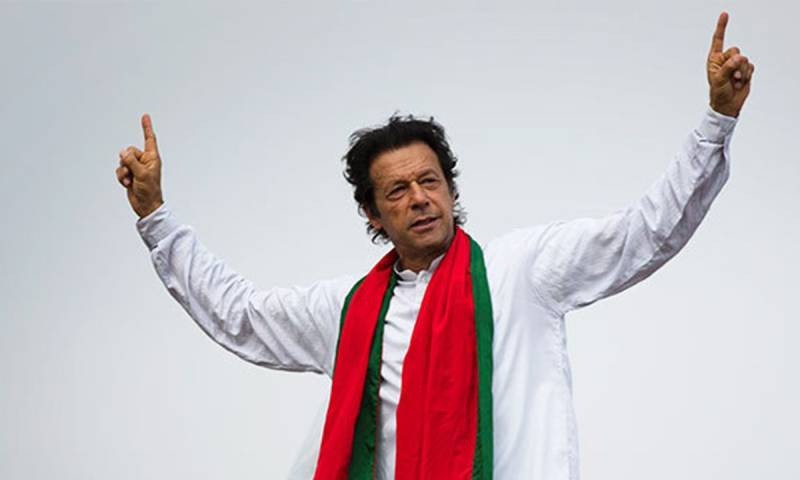
Pakistan is flirting with a textbook emerging-market crisis and getting Islamabad out of its jam is once again the job of the International Monetary Fund (IMF), says an article published by Bloomberg.
“Pakistan has agreed its 13th IMF bailout since the 1980s. Steering a recovery may be a tougher task than winning the world cup for cricketer-turned-PM Imran Khan,” it added.
It warned that the IMF’s suggestion to let the currency float freely could extend its 30 per cent decline against the dollar since December 2017.
“Rather than having to deal with stagflation and balance-of-payment deficits, Prime Minister Imran Khan is probably wishing he was in England at the Cricket World Cup, which Pakistan won for the first and only time under his captaincy in 1992,” it remarked.
It notes that the average Indian will earn twice as much as the average Pakistani by 2024. But in 1980, Pakistan’s per capita real GDP, adjusted for purchasing power of the currency, was 65 per cent higher than India’s. Now it’s 28 per cent lower than its neighbour’s level, and the IMF expects the gap to keep widening.
According to the article, the construction frenzy sparked by the $62 billion China-Pakistan Economic Corridor had petered out. And the three cement makers are among the biggest losers on the Karachi Stock Exchange’s KSE100 Index this year, with price drops ranging between 45 per cent and 55 per cent.
But it noted that the US-China economic war can benefit Pakistan somewhat.
“China is still the No. 1 supplier of cotton trousers, shorts and towels to the US, but trade tensions with Beijing are shifting the industry to South and Southeast Asia.”
As US President Donald Trump’s trade war against Beijing intensifies, American buyers are diversifying their supplier base away from China, the No 1 exporter of cotton terry towels, trousers and shorts.
Already, Bangladesh is close to snatching the trousers-to-towel crown. Pakistan, at No 6 last year, has grown its own shipments to the U.S. by almost 12% this year. It may overtake India, which has seen virtually no improvement.
It also claims that the devaluation may boost Pakistan’s exports, if the currency slides further and inflation doesn’t accelerate, provided global growth and cotton availability for the textile industry hold up.
It also noted that subsidised interest rates on low-cost housing could plug the demand shortfall to some extent. But the fiscal elbow room to run such ambitious programs is too limited. Besides, boosting agricultural yields may be a bigger priority than supporting urban consumers.
The article says Imran has no choice but to embrace the conditions imposed by the IMF with the rescue and, “The prime minister can only hope that the reordering of global supply chains will create opportunities and ease the pain of Pakistan’s recovery. A world cup win would also lift sentiment, but the odds on that are rather long.”
“Pakistan has agreed its 13th IMF bailout since the 1980s. Steering a recovery may be a tougher task than winning the world cup for cricketer-turned-PM Imran Khan,” it added.
It warned that the IMF’s suggestion to let the currency float freely could extend its 30 per cent decline against the dollar since December 2017.
“Rather than having to deal with stagflation and balance-of-payment deficits, Prime Minister Imran Khan is probably wishing he was in England at the Cricket World Cup, which Pakistan won for the first and only time under his captaincy in 1992,” it remarked.
It notes that the average Indian will earn twice as much as the average Pakistani by 2024. But in 1980, Pakistan’s per capita real GDP, adjusted for purchasing power of the currency, was 65 per cent higher than India’s. Now it’s 28 per cent lower than its neighbour’s level, and the IMF expects the gap to keep widening.
According to the article, the construction frenzy sparked by the $62 billion China-Pakistan Economic Corridor had petered out. And the three cement makers are among the biggest losers on the Karachi Stock Exchange’s KSE100 Index this year, with price drops ranging between 45 per cent and 55 per cent.
But it noted that the US-China economic war can benefit Pakistan somewhat.
“China is still the No. 1 supplier of cotton trousers, shorts and towels to the US, but trade tensions with Beijing are shifting the industry to South and Southeast Asia.”
As US President Donald Trump’s trade war against Beijing intensifies, American buyers are diversifying their supplier base away from China, the No 1 exporter of cotton terry towels, trousers and shorts.
Already, Bangladesh is close to snatching the trousers-to-towel crown. Pakistan, at No 6 last year, has grown its own shipments to the U.S. by almost 12% this year. It may overtake India, which has seen virtually no improvement.
It also claims that the devaluation may boost Pakistan’s exports, if the currency slides further and inflation doesn’t accelerate, provided global growth and cotton availability for the textile industry hold up.
It also noted that subsidised interest rates on low-cost housing could plug the demand shortfall to some extent. But the fiscal elbow room to run such ambitious programs is too limited. Besides, boosting agricultural yields may be a bigger priority than supporting urban consumers.
The article says Imran has no choice but to embrace the conditions imposed by the IMF with the rescue and, “The prime minister can only hope that the reordering of global supply chains will create opportunities and ease the pain of Pakistan’s recovery. A world cup win would also lift sentiment, but the odds on that are rather long.”
